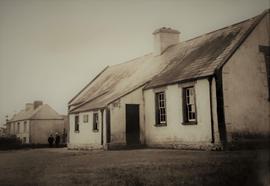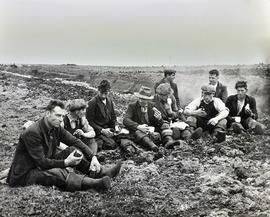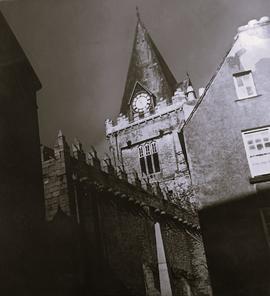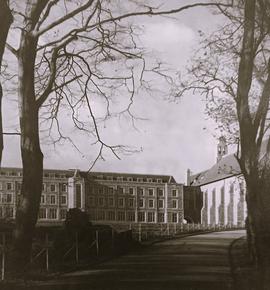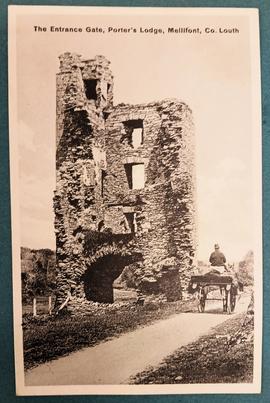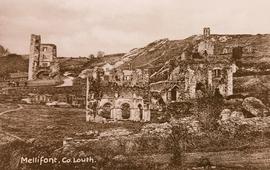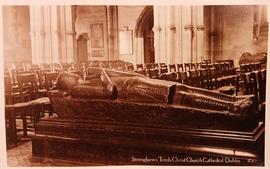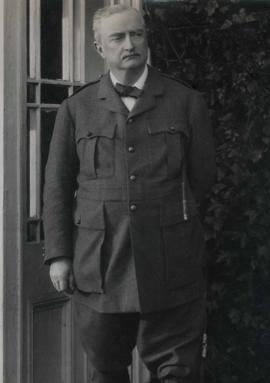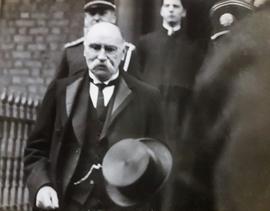An image of the exterior of Meentogues National School in County Kerry in about 1940.
A print titled (on the reverse): ‘Turf / Lunchtime on the bog / Turf workers on Clonsast bog, County Offaly’. The image is credited to Charles C. Fennell.
An image of two Irish Army armored cars on manoeuvres in the countryside during the wartime 'Emergency'.
An image of Saint Nicholas’s Collegiate Church on Lombard Street in Galway city.
An image of the approach to St. Peter’s College on Summerhill Road in Wexford town.
A postcard print of the gatehouse (or porter's lodge) at the ruined Mellifont (Cistercian) Abbey in County Louth.
A postcard print of the ruins of the ruined Mellifont (Cistercian) Abbey in County Louth.
A postcard print of the reputed tomb of Strongbow (Richard de Clare), the Anglo-Norman lord, in Christ Church Cathedral in Dublin.
A portrait print of John Redmond (1856-1918).
An image of Douglas Hyde (1860-1949), President of Ireland, leaving St. Andrew's Church on Westland Row in Dublin.
